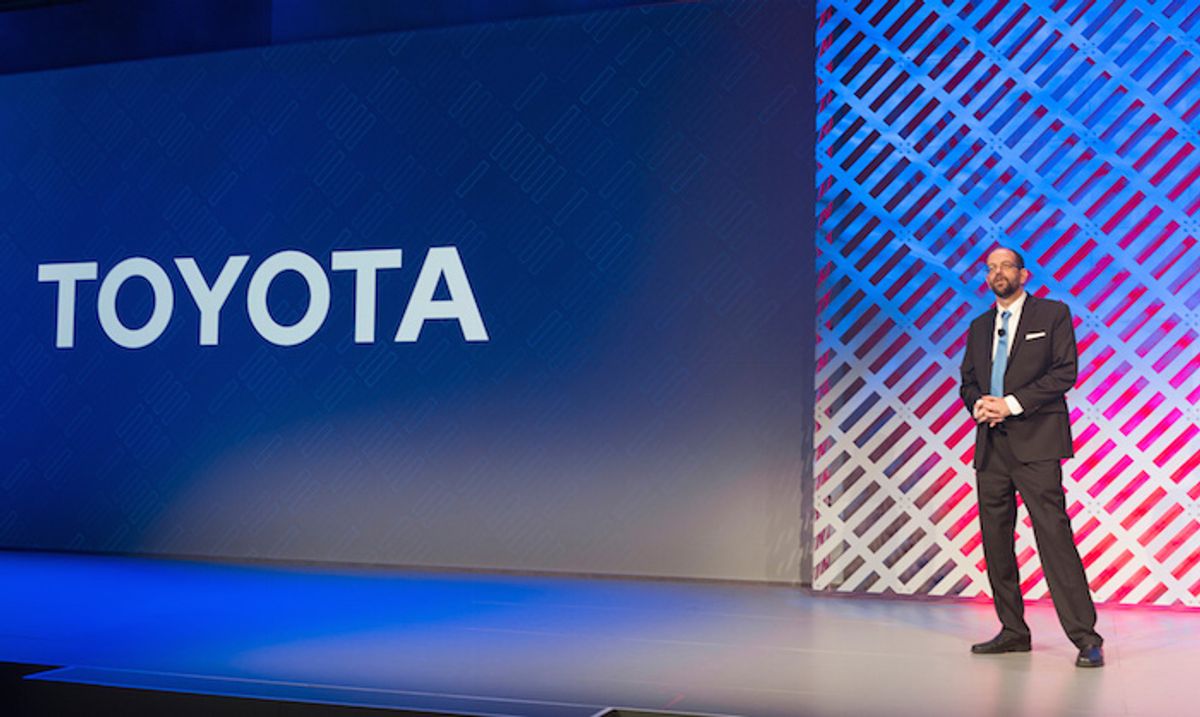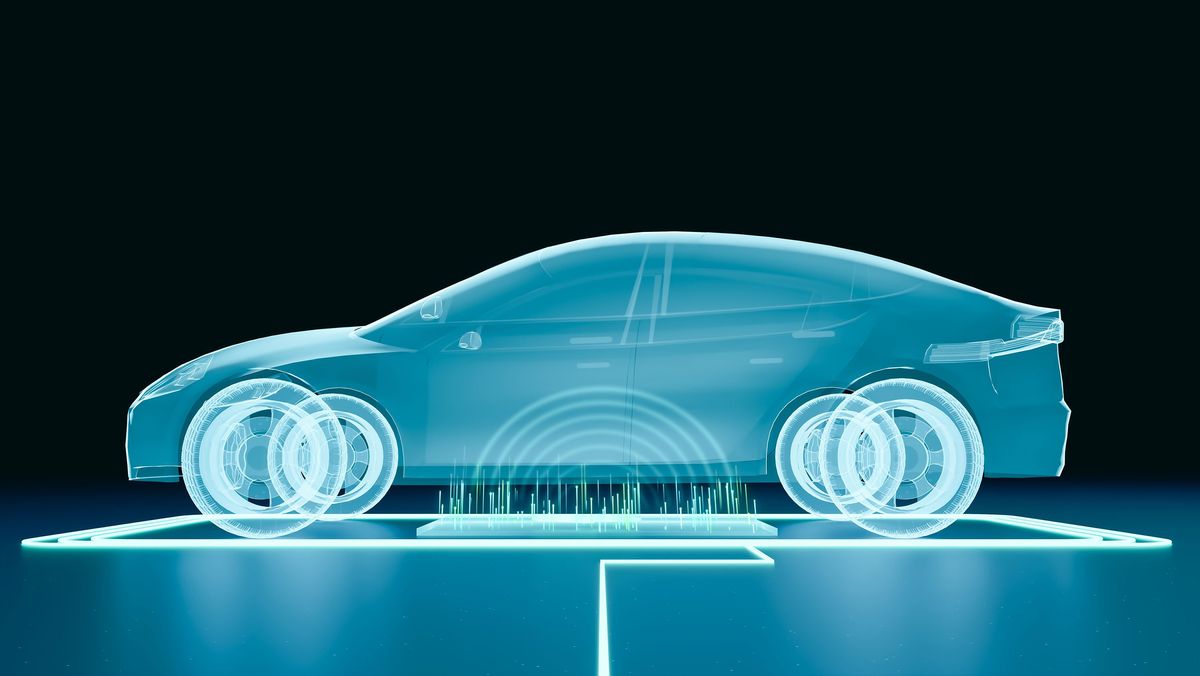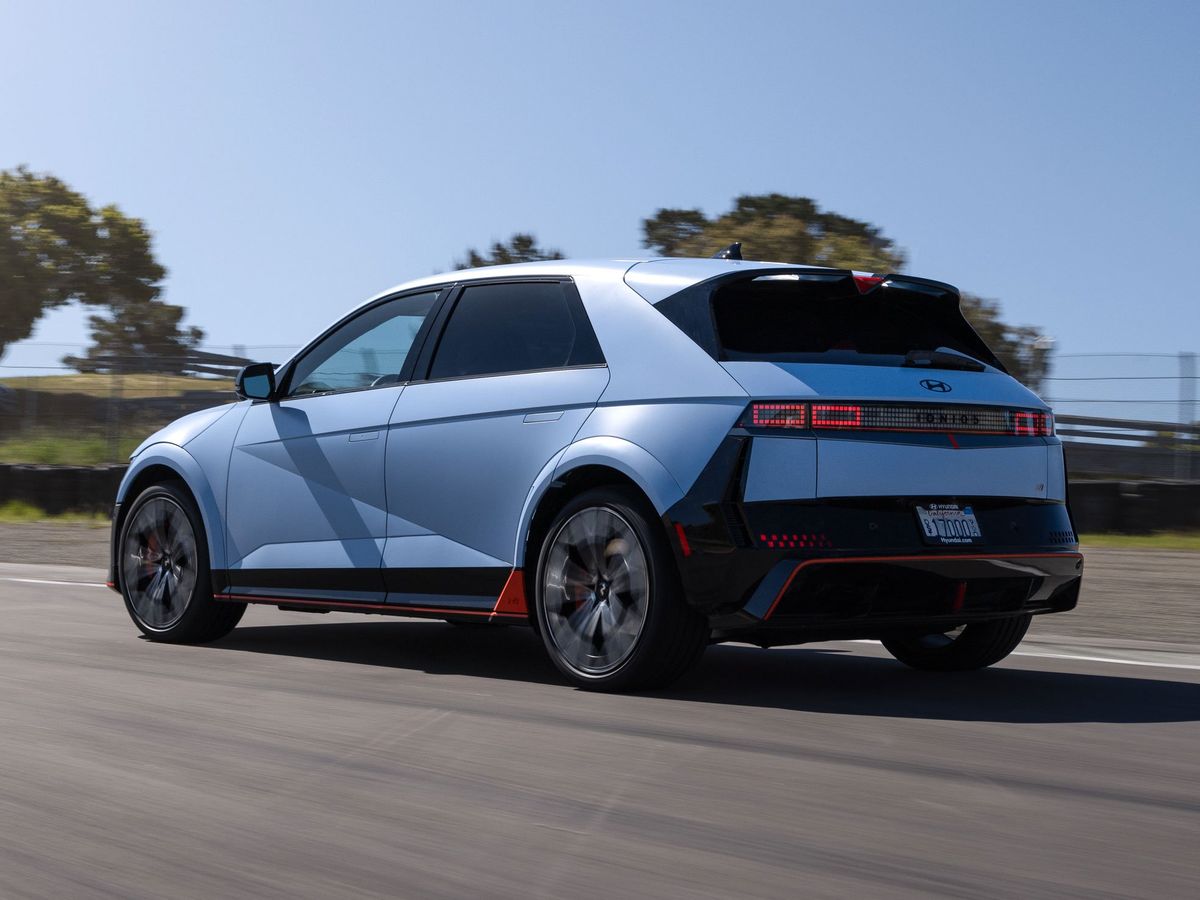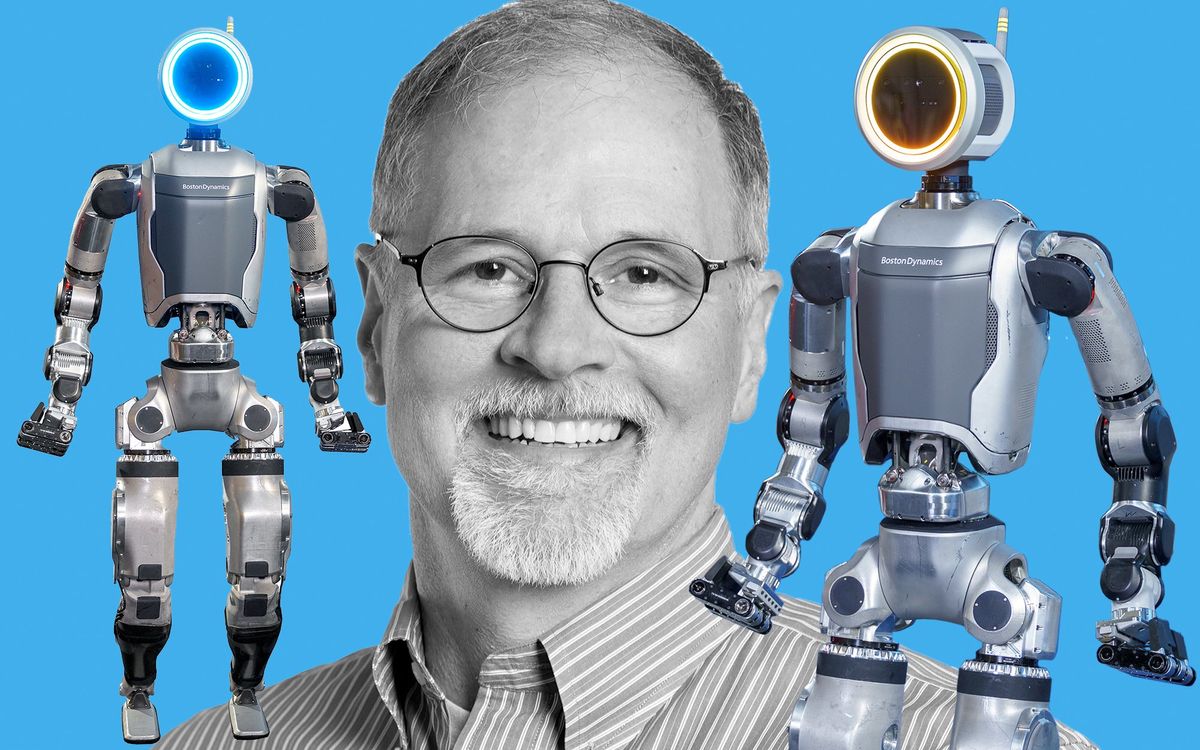Toyota revealed more details about its ambitious AI and robotics effort yesterday at CES in Las Vegas. Dr. Gill Pratt, who leads the effort as CEO of the newly formed Toyota Research Institute (TRI), announced an impressive line-up of engineers and executives to head its technical leadership team and advisory board. Among the hires is James Kuffner, who until recently led Google’s robotics program and will focus on cloud computing at TRI. The advisers include notable technologists like Rodney Brooks from Rethink Robotics and Marc Benioff from Salesforce.
Late last year, Toyota unveiled a US $1 billion program to advance AI and robotics, hoping to make cars safer and smarter, and also develop useful, reliable home robots to assist people. TRI established a research partnership with Stanford and MIT and will open offices near those institutions in Palo Alto, Calif., and Cambridge, Mass., respectively. The automaker, which apparently holds more autonomous car patents than any other company, says it has nearly 30 projects ready to be developed in collaboration with the Stanford and MIT researchers.
At CES, Dr. Pratt described the motivations that led to the establishment of TRI. One of its mandates is enhancing safety, with the ultimate goal of “creating a car that is incapable of causing a crash.” Other mandates involve increasing access to vehicles to people who cannot drive, developing mobility technology for indoor applications, and accelerating scientific discovery using AI and machine learning.

He then introduced the initial members of the TRI technical team:
- Eric Krotkov, Former DARPA Program Manager―Chief Operating Officer
- Larry Jackel, Former Bell Labs Department Head and DARPA Program Manager―Machine Learning
- James Kuffner, CMU Professor and former head of Google Robotics―Cloud Computing
- John Leonard, Samuel C. Collins Professor of Mechanical and Ocean Engineering, MIT―Autonomous Driving
- Hiroshi Okajima, Project General Manager, R&D Management Division, Toyota Motor Corporation―Executive Liaison Officer
- Brian Storey, Professor of Mechanical Engineering, Olin College of Engineering―Accelerating Scientific Discovery
- Russ Tedrake, Associate Professor in the Department of Electrical Engineering and Computer Science, MIT―Simulation and Control
After the presentation, we got a chance to speak with some of the team members. We asked James Kuffner, who was part of the original self-driving car team at Google and more recently led its scattered robotics division after Andy Rubin abruptly abandoned it in 2014, what he was looking foward to with his new position at TRI:
“It’s a great opportunity that’s more focused [than Google's robotics program] and I do think that under Gill’s leadership we’ll be able to make a big difference. I feel that creating a new team and going for big goals with lots of unsolved research problems is something that keeps me going and I’ve been doing that for a couple years at Google and now I’m excited to explore some new technologies and learn a lot of new things.”
We also spoke to MIT’s Russ Tedrake (who, along with MIT colleague John Leonard and Olin professor Brian Storey, will work part time with TRI while maintaining their university roles). Tedrake led the MIT team at the DARPA Robotics Challenge, and at TRI he plans to extend the research he was doing in his lab, focusing on robustness analysis of complex robotics, control, and vision systems:
“This is the best of both worlds for me. It’s the ability to do something big here with actually a direct connection to what I’ve been doing in lab. . . . I think that robotics is obviously in this huge upper trajectory but if things start failing, if people start realizing that your demos are not products, I think that the whole field could burst. So I think that robustness is the major thing separating academic research from product and this is chance to address that head-on.”
“Home robots may be even more personally prized in our future than cars have been in our past.”
In addition to a technical leadership team, TRI also assembled an advisory board, whose members include:
- John Roos, former CEO of Wilson Sonsini and former U.S. Ambassador to Japan. Currently, General Partner at Geodesic Capital, a late stage venture capital firm and Senior Advisor at Centerview Partners, a preeminent mergers and acquisitions advisory firm―Chairman
- Rodney Brooks, former director of the MIT Computer Science and AI Lab, founder of iRobot and Founder, Chairman and CTO of Rethink Robotics―Deputy Chairman
- Marc Benioff, CEO of Salesforce.com
- Richard Danzig, Former U.S. Navy Secretary
- Bran Ferren, former President of R&D at Walt Disney Imagineering and Chief Creative Officer of Applied Minds
- Noboru Kikuchi (planned), Emeritus University of Michigan Professor, head of Toyota Central Research and Development Lab and the Toyota Research Institute of North America
- Fei-Fei Li, director of the Stanford Artificial Intelligence Laboratory (SAIL)
- Daniela Rus, director of MIT's Computer Science and Artificial Intelligence Laboratory
In his CES speech, Dr. Pratt explained that in the 1930s, Toyota, then a manufacturer of fabric looms, saw the revolutionary potential of automobiles and decided to enter the car industry, a bold move that proved immensely profitable. “It is entirely possible that robots will become for today’s Toyota what the car industry was when Toyota made looms,” he said. TRI will focus on mobility not only outdoors but indoors as well, a need “fueled by our aging society,” Dr. Pratt added. “Home robots may be even more personally prized in our future than cars have been in our past.”
[ Toyota ]
Evan Ackerman is a senior editor at IEEE Spectrum. Since 2007, he has written over 6,000 articles on robotics and technology. He has a degree in Martian geology and is excellent at playing bagpipes.
Erico Guizzo is the Director of Digital Innovation at IEEE Spectrum, and cofounder of the IEEE Robots Guide, an award-winning interactive site about robotics. He oversees the operation, integration, and new feature development for all digital properties and platforms, including the Spectrum website, newsletters, CMS, editorial workflow systems, and analytics and AI tools. An IEEE Member, he is an electrical engineer by training and has a master’s degree in science writing from MIT.



